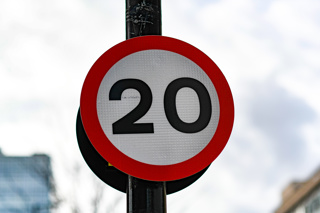Almost half of businesses operating vehicle fleets are unaware that they could face tax bills for thousands of pounds if staff mileage claims are inaccurate, a study has revealed.
Her Majesty’s Revenue and Customs (HMRC) is cracking down on companies, large and small, in an effort to claw back unpaid taxes due on fraudulent mileage claims.
An HMRC spokesman commented: "Employers should have appropriate systems in place to verify that any business mileage claims made by their employees can be paid free of tax. Should such claims turn out to be false, both the employer and employee may be liable to action taken by HMRC."
Implementation of affordable fleet management technology can ensure companies don’t fall foul of HMRC’s tax requirements, says TomTom Business Solutions.
According to the survey, commissioned by TomTom, 47% of businesses don’t yet know about the initiative or the fact that they could be billed for thousands of pounds of unpaid tax if the claims are proved inaccurate.
The research also reveals that while 50% of businesses don’t routinely double check the accuracy of their drivers’ mileage claims, 72% suspect that their drivers regularly over-estimate mileage claims.
More than one in ten (11%) are convinced that claims ‘inflation’ happens routinely.
“In today’s tough economic climate, taking a harder line on business mileage claims could net the HMRC significant additional tax revenue,” said Giles Margerison, director, UK & Ireland for TomTom Business Solutions.
“For businesses who want to mitigate their risk, vehicle tracking provides foolproof evidence of exactly how many miles were travelled, by whom and when to validate mileage claims. Detailed mileage expense reports can be generated at the touch of a button and exported directly into company accounts, minimising time-consuming admin.
“Moreover, employees also benefit from the technology by reducing their administrative burden. They no longer have to complete mileage expense reports and also benefit from tools to improve their working day and to make for safer working conditions.”
























Login to comment
Comments
No comments have been made yet.